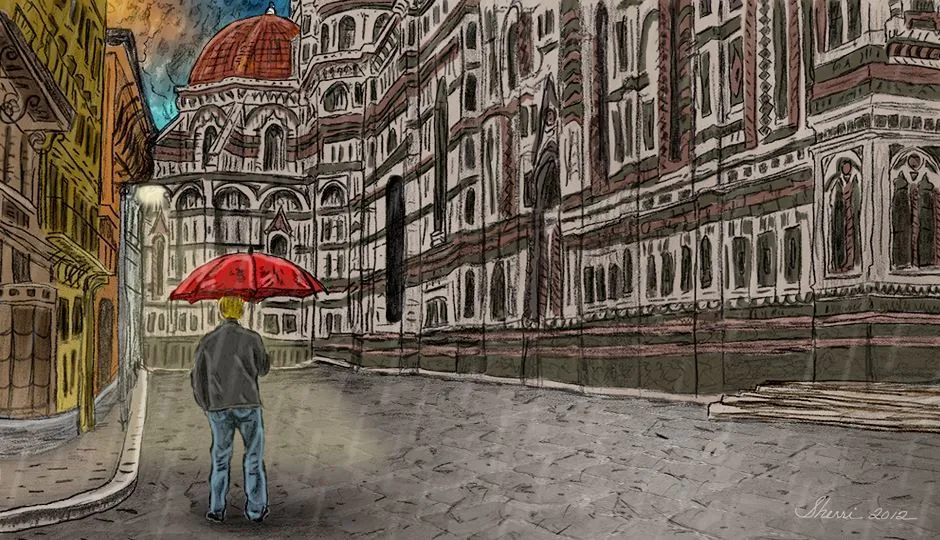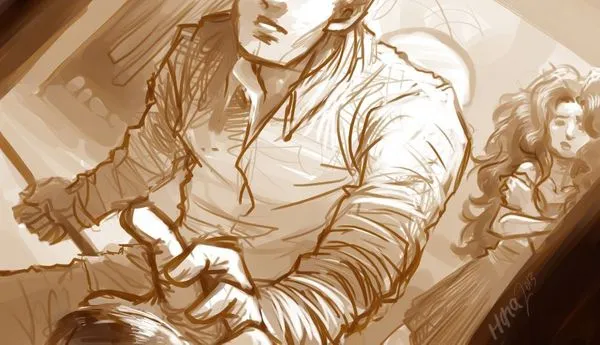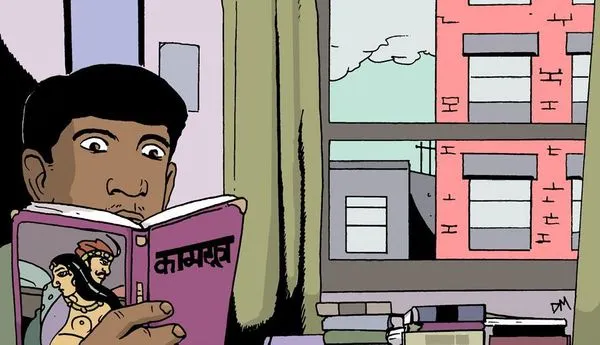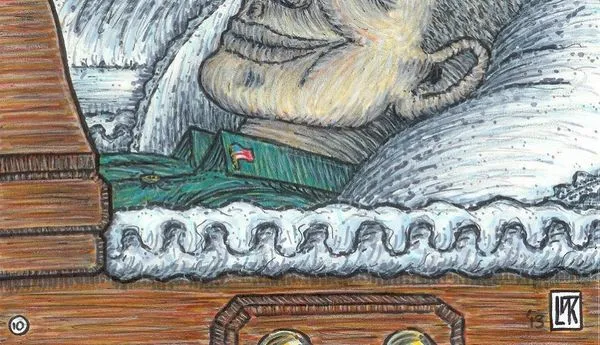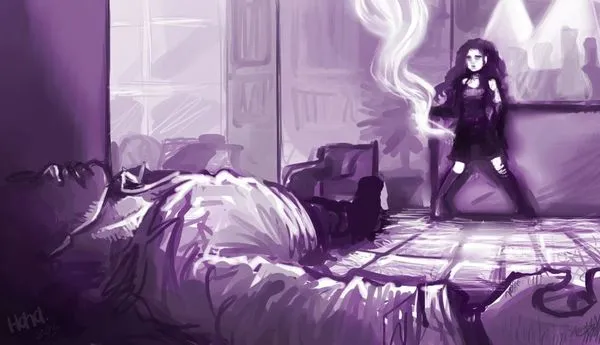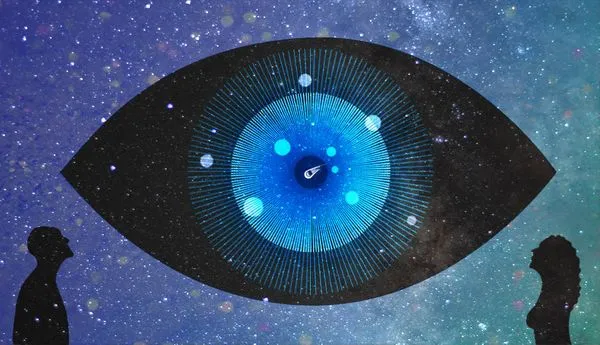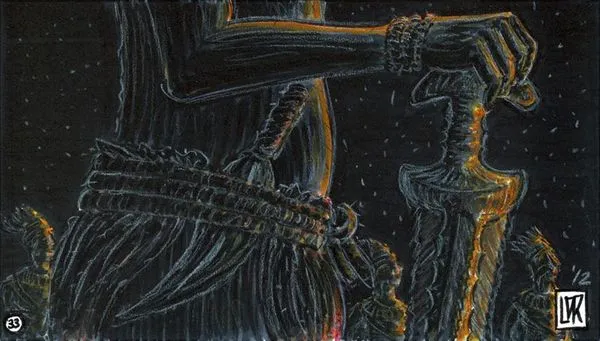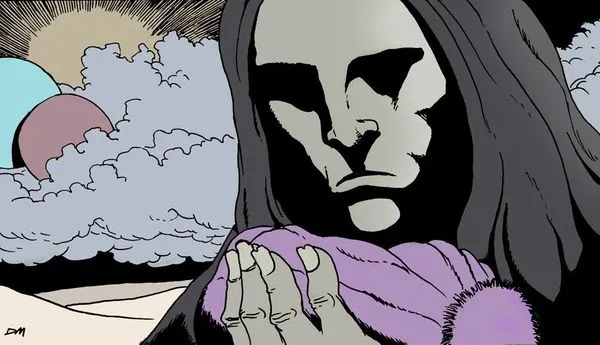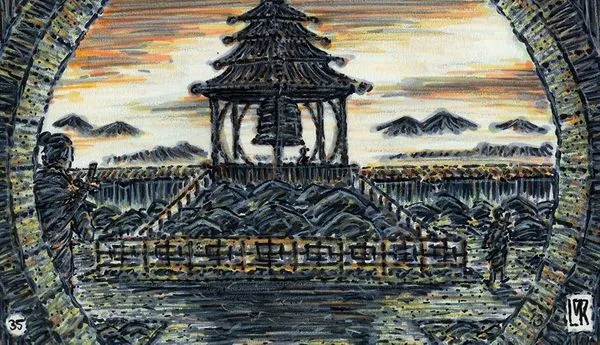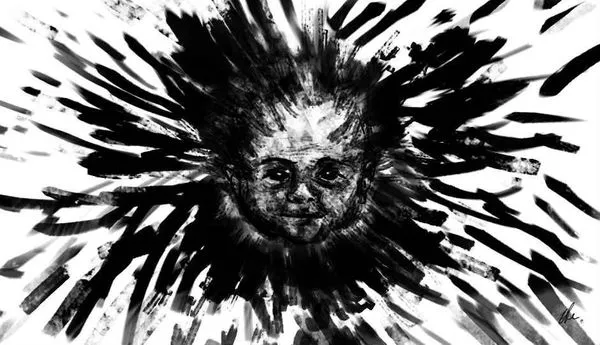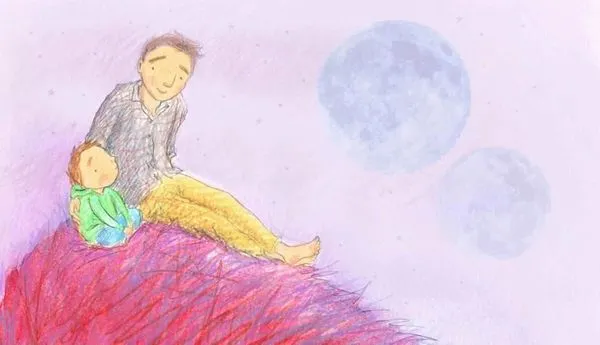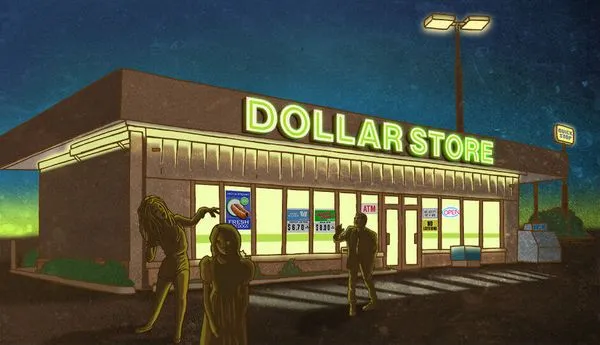Art Is The Child
Published on 2013-02-04
Lucky enough to find a temporary production assignment, I was on the set when Richard texted me. His mother Naomi had just flown in from the east and wanted to know if she could see us both the following afternoon.
Over tea and sandwiches at the Polo Lounge at the Beverly Hills Hotel, Naomi, small, round and heavily powdered with Founding Fathers-like white curls, made Richard and me a proposition: half a million dollars—each—to have a child together. The idea thoroughly shocked yet intrigued me. Recently transplanted from the Midwest, I was but another struggling young writer with a useless degree living in a Hollywood hovel, my makeshift desk a splintery door perched atop two pilfered trashcans.
Work and money were scarce. And I loved babies. I could do worse than to sleep with my handsome friend Richard even if he hadn’t had sex with a woman in fifteen years.
Naomi, nobody’s fool, was secretly delighted about Richard, as she’d heard from assorted friends that homosexuals made doting sons. For the sake of her dead, corporate-raiding, homophobic husband, however, she was thrilled that Richard was spending time with a girl.
Richard didn’t really care for children. To him the only baby worth gazing upon was the tiny Jesus in Botticelli’s _Madonna of the Magnificat. _ He told me how he’d first seen the painting when at twenty-one, two months shy of graduating he’d dropped out of Williams to travel. Armed with his inheritance, cowboy boots, tight jeans and a tiny, moon-faced girl from Smith he would ditch within the week for a straggly, sullen young Italian man, Richard flew to Milan then took the train to Florence where he roamed the old crumbling streets, visiting The Duomo and Santa Croce, standing in awe, long, sinewy, denim-clad legs astride Michelangelo’s grave.
He haunted the Accademia, stunned by the David, seventeen feet, he laughed, of the most gorgeous man he’d ever seen. But it was the Uffizi that truly captivated him and he went six times, transfixed by the _Madonna of theMagnificat. _Mesmerized by the little Jesus’ adoration of his exquisite mother, for the first time in his life Richard found himself thinking about his own birth mother.
Had she ever—even for a moment—had the pleasure of seeing him look up at her like that? He realized she probably had not and it broke his heart.
Adopted by Naomi and the late Bob Montague at birth, Richard grew up with a refrigerator-shaped German nanny in a large house outside Philadelphia. Yet he loved to tell people his real mother was a fine-boned, blue blooded deb from Connecticut who’d gotten into trouble her second year at Radcliffe by a Harvard divinity student, her banker father insisting she give up the baby soon as it was born.
I understood never to question the authenticity of this story anymore than I might ask Richard the actual year of his birth. You didn’t dare question or contradict Richard. You might think about it. But in the end you were grateful for whatever information he gave you because he spoke in colors that bled into one another, Faulkner if he’d been, instead, a gifted painter or a Yankee, sentences meandering richly, painting gold and damson summer skies from another time.
Lots of gays, Richard insisted, fathered children. Our baby, he said, would certainly be beautiful. And half a million was nothing for me to sneeze at, I’d be set for life, why, did I aspire toward nothing more than to live like some pathetic character from a Fante novel? (Richard and I had met eight months earlier in a rather depressing writer’s workshop).
The idea of sudden wealth was tempting. Yet when I tried in earnest to wander ahead in time, cradling in my arms a soft, warm child, dreams blowing across a chimerical future like lost tumbleweed, much as I wanted, I could never find Richard there.
He was furious when I declined Naomi’s offer and it was only after he became ill he would allow me to visit. One windy October afternoon I walked into the solarium of his house perched high on Woodrow Wilson Drive. The A-shaped double glass ceiling steepled toward heaven, tall medicinal-smelling eucalyptus trees cowering over the arch like petrified verdigris servants. He was napping on a chaise. The pattern of the silken fabric he lay upon was of flowerbeds with Chinese gardeners. Richard had told me he’d selected it because it reminded him of a culture where youth was not so heavily worshipped, a place, perhaps, where he might’ve been better off.
It was rare to see Richard silent, without spewing forth the perfect, clever quip for which he was known. Touching his arm, I felt shame when my hand recoiled. His spotty skin was like tissue paper, wrist manacled by a gold Cartier bracelet given him by the lover who’d made him sick. His hair was redolent of ginger and oranges, a lovely odor that nearly, but not quite, eradicated the sour smell of demise that surrounded him. He’d told me many times he was terrified of growing old and it stunned me to realize it had not been that long ago, really, that he was still quite attractive and healthy, happily hosting his fancy friends from the cities of the world, rising early with the anticipation of a child in late December as he awoke guests ensconced in a handsome sleigh bed, presenting them with trays of hot espresso and warm berry scones he had baked himself.
I picked up the book he’d been reading that lay opened upon the ruined, thin torso trying to maintain a modicum of dignity beneath the loose gray sweats in which he was swaddled. Monologue of a Mother, from D.H. Lawrence: Strange he is, my son, for whom I have waited like a lover…gazing out beyond where the winds go Free…with wistful eyes that hover Always on the distance.
At the memorial service near Philadelphia, I was given the privilege of telling several hundred mourners how Richard gave my life a sense of grace while blanketing me with a friendship unlike any I had ever known. As I spoke,the door to the chapel opened. In walked the woman I would within the hour learn was Richard’s birth mother. She was indeed the blue blood he’d boasted of and strangely, or predictably, she brought with her a small print of the _Madonna of the Magnificat. _Later, in the cavernous living room in the home in which Richard had grown up, she would tell me she’d been looking at a picture of it in an art magazine in a doctor’s office when four decades earlier she discovered to her horror and surprise she was pregnant with what would become Richard.
I watched her as she folded the Madonna print into a tiny origami-like bird and quietly, deftly, placed it by the porcelain urn containing the child she’d given away.
Richard would have thought this irony amusing. He would have been pleased.

